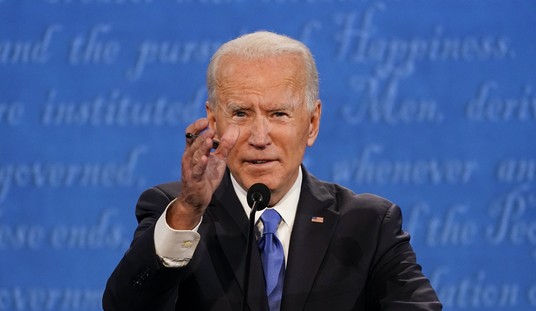South Carolina has developed a bad reputation in politics. In 2000, Republican operatives tried smearing John McCain in the presidential primary with rumors about his daughter, which some of his supporters still blame for his loss and the end of his first bid for the White House. In 2010, those same tactics have been on display in the gubernatorial campaign, but they don’t seem to be working any more:
There’s a whisper campaign going on in South Carolina this month, but it’s not what you might think. The whisper is that the political smear tactics that this state made famous don’t seem to be working this time around.
It started a couple of weeks ago, when two separate allegations of adultery were directed at Nikki Haley, a Republican candidate for governor. Voters either didn’t believe the unsubstantiated claims or didn’t care; Haley won 49.5 percent of the vote in the GOP primary. She and the runner-up, Rep. Gresham Barrett, will face each other Tuesday in a runoff.
Last week, more unseemliness: Some of Haley’s critics, including at least one county GOP chairman and two pastors, questioned whether the candidate, a first-generation Indian American who was raised in the Sikh tradition, is really a Christian, as she says she is. It’s a touchy topic for South Carolina, where race, religion and negative campaign tactics have a long, uncomfortable history in politics. It’s also touchy for Republicans, who are trying to get past their image among many Americans that theirs is the less tolerant party.
“This is the sad truth in politics: If you want to really make something stick on somebody, you make it very negative and you whisper it,” said South Carolina Attorney General Henry McMaster, who ran against Haley in the primary for governor but is supporting her in the runoff. “That’s what’s happening to Nikki right now. There’s no basis for it. There’s no reason for it. It’s politics at its worst. I wish we could eliminate it from the scene, and I hope that voters will understand that that’s what’s going on.”
Strategies don’t repeat themselves when they don’t succeed in the first place. If South Carolina’s election campaigns get hip-deep in the mud, it’s because mudslinging worked in the past. Attacks on character work because people don’t tend to know the candidates personally, and have to rely on their word that they will do what they promise, but Americans have an ingrained (and healthy) skepticism about politicians. When questions of character arise, they tend to undermine policy because without trust, policy becomes moot. And that’s true in a lot more places than South Carolina.
Why is 2010 different than 2000, or years before? More people are better informed than before, and have access to information that they can check for themselves. It’s more than just better technology, too. In this cycle, people want to be better informed, and they’re less likely to worry about religion and gossip than their own pocketbooks. Voters want an end to the status quo, and that also means an end to the politics of yesterday that got us to the status quo.
I did enjoy this passage from the Post, however:
“I think the 49 1/2 -percent figure that Nikki Haley garnered is a pretty clear indication that the people of South Carolina want to focus on the key issues,” said Romney, appearing with Haley at the College of Charleston Friday, a few feet from a marble plaque celebrating the education of the “sons and daughters” of Africa. He continued: “The distractions are not distractions anymore.”
If true, that could be good news for Romney should he run for president again; his Mormon faith was described as a liability in South Carolina in 2008. The state’s prominence in presidential primary politics — it is among the four “early” states on the calendar in 2012 — means the results here can have lasting effects. Romney placed fourth in South Carolina in 2008, behind McCain, Mike Huckabee and Fred Thompson.
Romney got a raw deal from some quarters on the basis of his religion, and I still think he would have been a better candidate in the general election against Barack Obama than McCain. However, Romney didn’t lose the nomination because of his religion (although it may have contributed in a secondary way); he lost it because conservatives didn’t coalesce around Romney until McCain took control of the primaries, thanks to confusion over Thompson’s status and concerns over Romney’s record in Massachusetts. The 2012 election will look a lot different than 2008, and will be fought on entirely different grounds as well. That’s the real lesson of why Haley is sailing to victory despite the best efforts of yesterday’s political strategies to drown her in innuendo and mud.







Join the conversation as a VIP Member